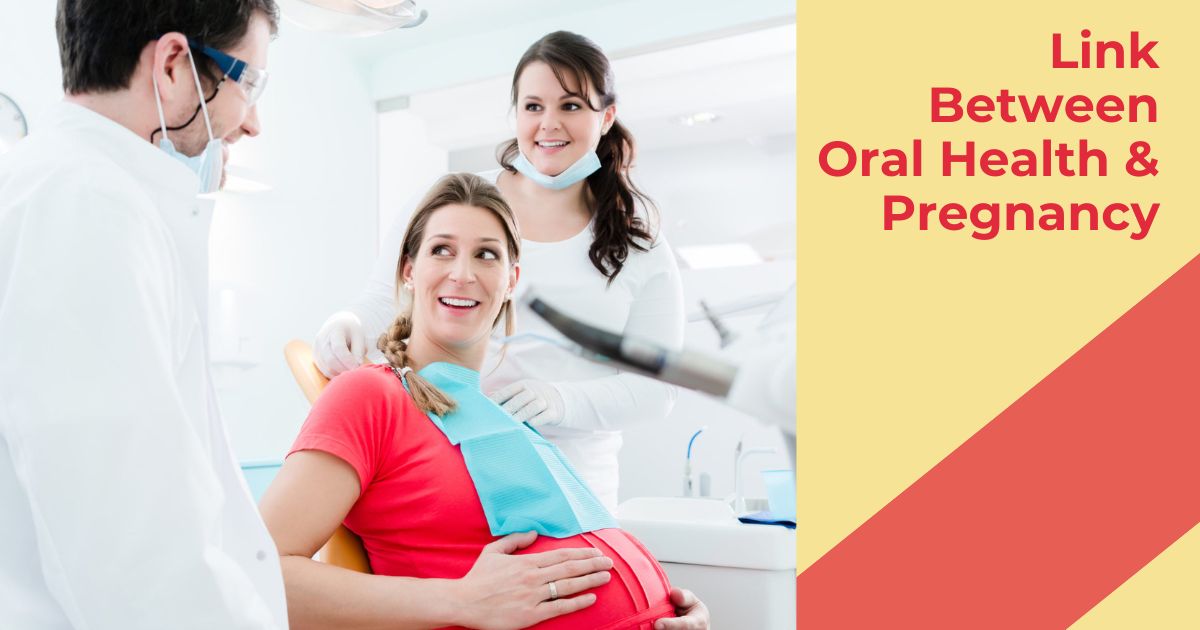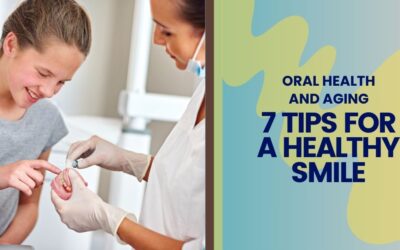There is indeed a strong link between oral health and pregnancy. Therefore maintaining good oral health during pregnancy is important for both the mother and the baby. Here are some key points to explain the link between oral or dental health and pregnancy:
- Hormonal changes during pregnancy can impact oral health: During pregnancy, there are hormonal changes that can increase the risk of certain oral health issues. For example, increased levels of progesterone can lead to increased blood flow to the gums, making them more susceptible to inflammation and bleeding.
- Poor oral health during pregnancy can increase the risk of complications: Studies have shown that poor oral health during pregnancy can increase the risk of complications such as preterm birth, low birth weight, and preeclampsia. These complications can have long-term effects on the health and development of the baby.
- Gum disease during pregnancy can impact the baby’s development: Some studies have shown that gum disease during pregnancy can lead to an increased risk of premature birth and low birth weight. These conditions can lead to developmental issues for the baby, including problems with vision, hearing, and cognitive development.
- Good oral hygiene practices can help prevent oral health issues during pregnancy: Practicing good oral hygiene habits, such as brushing twice a day, flossing daily, and visiting the dentist regularly for check-ups and cleanings, can help prevent oral health issues during pregnancy.
- Morning sickness can impact oral health: Morning sickness, a common condition during pregnancy, can increase the risk of tooth decay and erosion due to the increased exposure of teeth to stomach acid.
- Nutritional deficiencies during pregnancy can impact oral health: Nutritional deficiencies like deficiency of calcium and vitamin D during pregnancy, can impact the health of teeth and bones, increasing the risk of tooth decay and other oral health issues.
- Safety of Dental treatment during Pregnancy: Many pregnant women are hesitant to seek dental treatment due to concerns about the safety of certain procedures. However, most dental treatments, including fillings and root canals, are safe during pregnancy, especially if performed during the second trimester. Ask your dentist to get a clear answer as they know your body condition well.
- Medications during pregnancy can impact oral health: Some medications that are commonly used during pregnancy, such as antacids and antibiotics, can impact oral health by increasing the risk of tooth decay and gum disease.
- Dental care during pregnancy can improve overall health: Maintaining good oral health during pregnancy can have a positive impact on overall health, including reducing the risk of certain pregnancy complications and improving the health of the baby.
- Pregnancy can impact dental treatment plans: Some dental treatment plans may need to be postponed during pregnancy to account for the increased risk of certain complications and to ensure the safety of the mother and baby.
- Breastfeeding can impact oral health: Breastfeeding can impact oral health. The risk of tooth decay happens in the baby if the baby is allowed to fall asleep while nursing or if the mother does not practice good oral hygiene habits.
- Good oral health habits can benefit the baby’s oral health: Practicing good oral hygiene habits during pregnancy can benefit the baby’s oral health, both during pregnancy and after birth. For example, good oral hygiene habits can reduce the risk of bacteria being passed from the mother to the baby through the mouth.
Overall, maintaining good oral health during pregnancy is important for both the mother and the baby in the womb. By practicing good oral hygiene habits, seeking appropriate dental treatment as and when needed, and paying attention to the impact of pregnancy on oral health, expectant mothers can help ensure a healthy pregnancy and a healthy baby.




